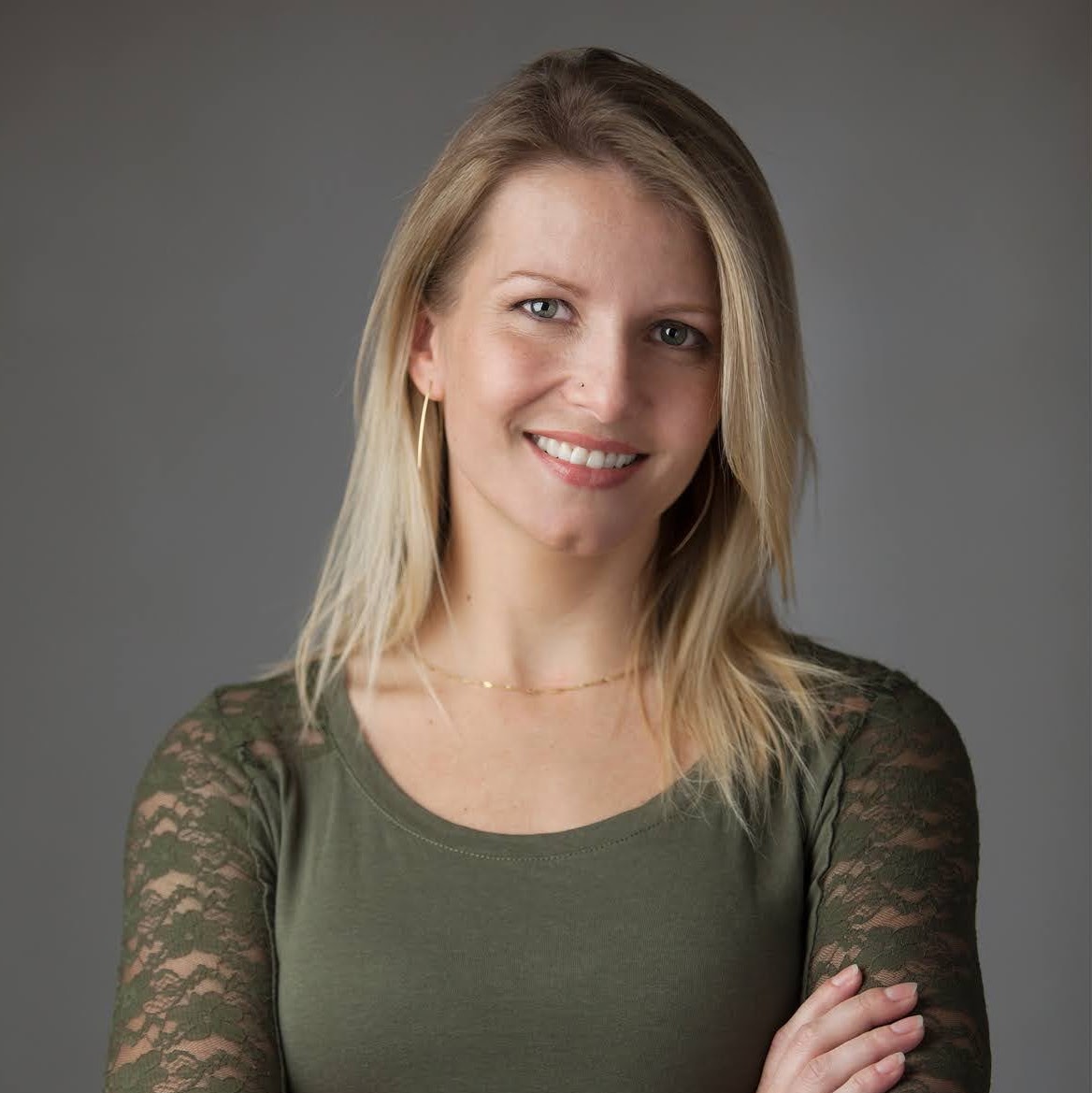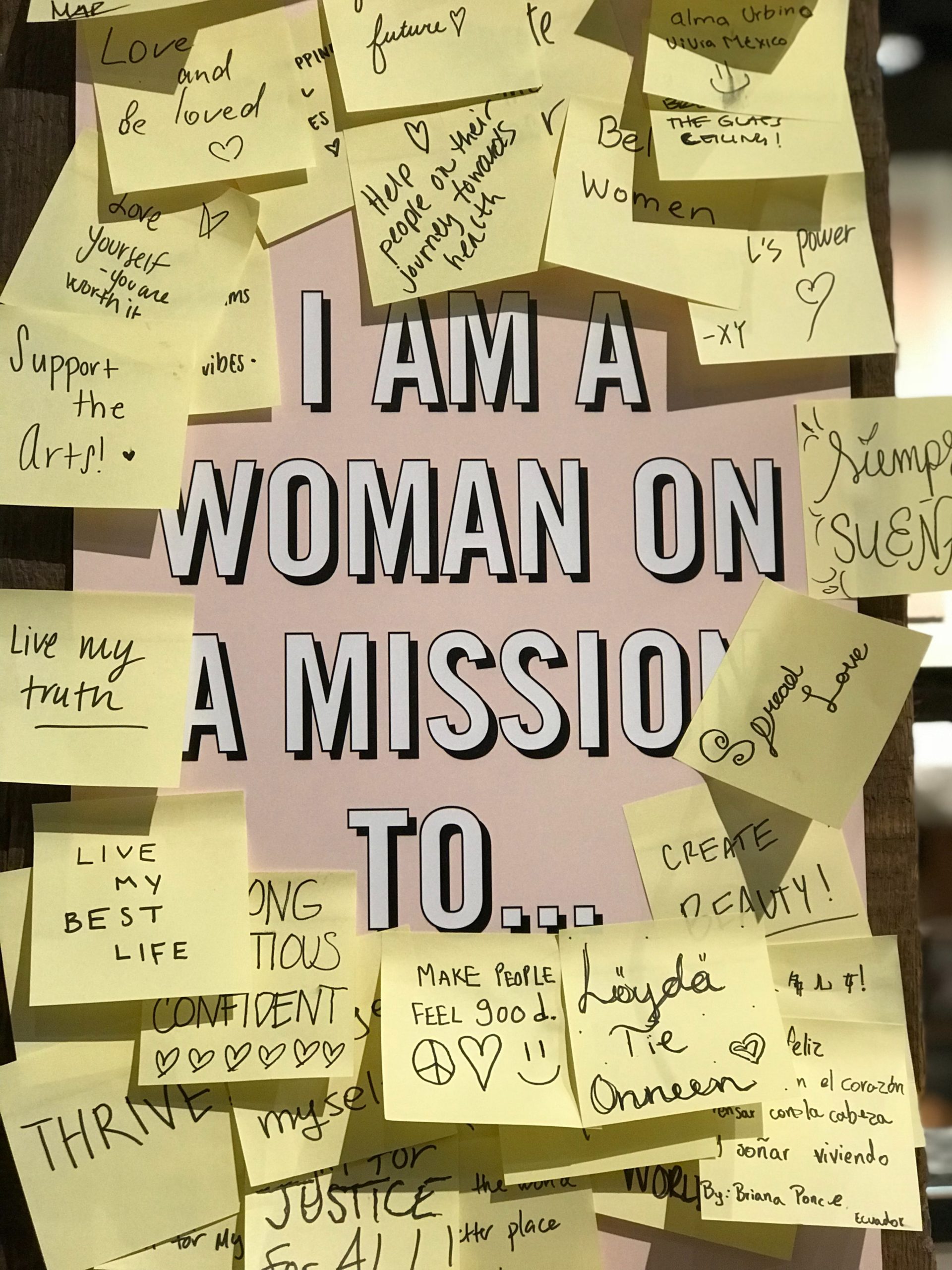
Career Coaching, Leadership, Relationships
Simple strategies to make a recruiter your best friend
This week I attended an incredible talk from recruiter Cheryl Bedard, who shared her thoughts on engaging properly with recruiters. One of the things that struck me as particularly important is we often only think about contacting a recruiter when we are in-between jobs or thinking of making a move. This is a very shortsighted strategy – active management of your career includes cultivating your connections with recruiters over time, along with the rest of your network, so that you have the support you need when you need it. In addition to this top tip, here are some other thoughts on how to make a recruiter your best friend: Be approachable and respond to emails and calls This one struck me as a surprise, as doesn’t everyone have a current email on their LinkedIn account? Evidently not. Make sure your profile is current and correct and use an email that you actually monitor and will respond to. If you’re actively looking for a job, answer the phone. This one may take a bit of a mind shift change as we’re programmed these days to let everything go straight to voicemail. But if I’m a busy recruiter, instead of leaving a message, I may just hang up and call the next candidate on my list. And Cheryl pointed out a very interesting piece of info – that coveted call from the recruiter might be tagged as spam on your phone. The only way to know for sure is to take the call and see. You can always hang up if it’s spam. Lastly, listen to your voicemails and make sure your mailbox is not full, with an aim to return messages within 24 hours. You should call them back and not text and definitely leave a voicemail if they don’t answer. Know what you want and why I often speak about this ad nauseam with career coaching clients. If there are 5 similar resumes, why would the company pick you? You need to have an answer to this question. And just in case you were wondering, “I’m willing to do anything” is not a good response. Cheryl’s perspective echoed mine, that the talent market does not respond well to generalists. You need to be a specialist in something, clearly understand the value you bring and be able to articulate it confidently. To that point there are 5 ways to speak to value – increased revenue, increased profitability, decreased cost, avoided cost, saved time. Think about the question – “What do you do to make your bosses life easier?” if you’re struggling to come up with an answer to this one. And even if during the interview process they don’t ask the question, “Why should we hire you?” you need to close with this as part of your summary and make sure they know why they should hire you. Share, Share and Share A brilliant way to cultivate relationships with recruiters is to be a source of information for them and share […]
November 11, 2023
|
4.1 min read

Authenticity, Emotional Intelligence, Leadership
Feeling is freeing: How to Practice Emotional Intelligence
For years and years, I would have told you that I was a very emotionally intelligent person. I was aware that emotions could take many forms, had many names and I knew intellectually it was important to understand them. Emotional intelligence has been a notable topic for many years, and I considered myself to be one of those wise people who were in the know. Unfortunately, in all of my information gathering on the topic, I ignored one crucial point. That in order to have emotional intelligence you actually have to experience emotions. Who would have thought? The key to emotional intelligence is to not just identify the emotion we are experiencing with a handy dandy robust emotional vocabulary, but to allow ourselves to feel it non-judgmentally. This is a key point, because many of us who grew up in households where emotions were not welcome got used to shoving them down and pretending they didn’t exist. Feeling is freeing When we suppress emotions, it typically doesn’t lead to much good. We end up accumulating hurt on top of hurt and over time these feelings build up until one day we can’t shove them down any longer, and the long-awaited bomb finally erupts. Or we can try to numb them out with the help of food, booze, shopping, video game playing or any other addictive habit we have accumulated over the years. Not a recipe for success either. We often try to squash the negative emotions. The ones we consider to be “bad” like anger, frustration, sadness, guilt, shame (my personal favorite), disgust, overwhelm, anxiety, fear. We’re often not super aware of the oh so subtle tricks we’ve accumulated over the years for disowning these things in ourselves. I feel anxiety before delivering a leadership development program, particularly a new one. Perfectly reasonable, right? And yet, in my head I’m thinking to myself, “Bad Shelley. You shouldn’t be feeling that. You’re only feeling that because you’re a bad teacher and facilitator. If you were better at your job, you’d be more confident and you’d never experience this.” So the anxiety comes up, and I try to swat it down by directing anger at myself for having the emotion in the first place. Or perhaps I’m frustrated or angry at a family member. “Bad Shelley. You shouldn’t be feeling that. You’re only feeling that because you’re a bad niece, sister, cousin, etc. If you were a better person, you would be more caring and emphatic and understand their perspective and where they were coming from.” Here is the mental leap that often eludes us: having and especially feeling an emotion does not make a person “bad.” What matters at the end of the day is what we do with the emotion we’re having. I can be angry and resentful inside and yet I can still manage to put that aside and recognize in the moment exhibiting that behavior would not be helpful. I can choose my response. I feel the way […]
August 18, 2022
|
4.5 min read

Career Coaching
Career Transition Success Story – Part 2 – Forget the requirements, apply anyway!
In today’s blog we are continuing the story of Nora Pirsch, who recently transitioned from a yoga instructor to a UX designer. Nora credits her strong mental attitude in being critical in making the transition! Nora Pirsch is a User Experience designer that specializes in human connections. The desire to improve people’s day to day lives, has been a theme throughout her adult life. She has spent 15 years of her life mastering her craft as a yoga instructor and now she has begun her path to improving her skills as a UX designer. Nora has always enjoyed a challenge, from facing stage fright to showing extreme patience with her naturally fermented bread baking, she never goes down without a fight. When she is not interviewing users, you can find her baking fresh pizza and going for long walks with her dog Finch. Shelley: Let’s talk about of interviewing and as it relates to resiliency. You told me it was something like 80 jobs you applied to, and I was blown away by that and just how resilient you are. How did you keep yourself mentally strong, considering that there were probably a lot of setbacks in this process for you? Nora: I had amazing support from school from colleagues that I went to school with, even from people that my mom reached out to that were in the tech industry, and they would tutor me, and find people to help me walk along the path. That’s step number one. And then, part of the after-graduation program was applying to 10 jobs a week, that was the criteria. So that was very difficult in the beginning because I was spending too much time on writing pretty and elaborate cover letters. I really recommend getting a very basic template, and then just add two to three sentences make it a little bit more directed at that company. And that’s it because you will wipe yourself out writing those cover letters. And honestly, what is it 92% Of the companies don’t look at your cover letter until you’ve gone through the ATS. Shelley: I normally tell candidates, don’t even submit one unless they specifically asked for it. Because a lot of times they don’t even get read. Create a Process – Work Smarter Not Harder Nora: A lot of the times they don’t, but my school did encourage it. Because if there’s a candidate that if you’re side by side with, and one has a cover letter and one doesn’t, they’re going to go with the one that paid a little bit more attention. I came up with a simple template and started applying to more jobs. And then I closely shadowed a couple of the students in my class that were very big go getters, and we became quick friends. She told me what she was doing and her tactics. And I was asked, “Can I can I steal that from you?”And she said, “Oh my gosh, of course.” Forget the requirements […]
March 16, 2022
|
9.2 min read

Career Coaching
Career Transition Success Story – Nora Pirsch – From Yoga to UX Design! (Part 1)
Nora Pirsch Nora Pirsch is a User Experience designer that specializes in human connections. The desire to improve people’s day to day lives, has been a theme throughout her adult life. She has spent 15 years of her life mastering her craft as a yoga instructor and now she has transitioned her career to UX design. Nora has always enjoyed a challenge, from facing stage fright to showing extreme patience with her naturally fermented bread baking, she never goes down without a fight. When she is not interviewing users, you can find her baking fresh pizza and going for long walks with her dog Finch. You can connect with Nora here: www.norapirsch.com Part 1 – Nora’s career transition story: Networking and Figuring Out What You REALLY Want Shelley: Nora, share with me a brief history of your career up to the point you made your career transition. Nora: I was a full-time yoga teacher for about 15 years, I am still yoga teacher, but very, very part time now. And I really got into that because I wanted to travel a lot. And I wanted something that helped people improve themselves and feel better. So it seemed like a really good fit for me. And I still love teaching, I’ll never stop. It’s something that’s very close to my heart and part of me now. But about 10 years into it, I knew that I It wasn’t sustainable, what I was doing, teaching 10 to 12 classes a week, and just barely making paying the bills was really taking a toll on me. And it was hard because it’s something I love to do. But it wasn’t fulfilling me in other ways. So I knew I needed something different. I didn’t know what, so I was very, very gingerly putting my feelers out there for several years. And when COVID hit, I reevaluated what was important to me where I want to focus my time that I have on this amazing Earth. I just started asking questions, I started asking people, what do they do for a living. I really think a huge part of transitioning in general is reaching out and hearing other people’s stories, how did you get to where you are now, and those connections are invaluable. When transitioning you can get a lot of support that way too. And you can get a lot of leads that way into new jobs. CAreer transition tip: the power of Networking Shelley: Absolutely. You’re kind of alluding to informational interviewing, networking. And sometimes I have clients who are grappling with a career transition that really hesitate with that. They get nervous, they don’t want to do it, their Gremlin/Inner Saboteur gets activated by the whole thing. What if people say no? Nora: I’ve always been kind of a natural connector. I’ve always been pretty good at that naturally. But what I would say is, what have you got to lose? And what do you have to gain? Looking at those two sides, […]
March 9, 2022
|
11.5 min read

Career Coaching, Leadership, Life Direction and Purpose
What is a personal branding statement? Why do I need one?
There’s a lot of hype at the moment about knowing your personal brand. Let’s break it down – what is a personal brand, and why is a personal brand important in career search as well as managing your career? What is a personal branding statement? When I coach career and leadership coaching clients, we often talk about a personal brand – a simple 1-2 sentences that speak to: 1) your unique gifts and 2) how you add value. Notice I put the emphasis on simple. I have noticed there is a tendency on resumes these days to put a few objective lines at the top of a resume and throw in every buzzword known to man, in the desperate hopes of seo optimization and hoping that something you say will resonate with someone. “I seamlessly utilize my core strengths of teamworking, project management, financial acumen and strategic thinking to empower global organizations to create cost beneficial forward-thinking solutions on the cutting edge of digital transformation that drive efficiency, effectiveness and create a happier and healthier workforce.” This doesn’t work, just in case you were wondering, and often recruiters dismiss this as unnecessary fluff. The paragraph long sentences also read like something out of a Nathaniel Hawthorne novel, and I didn’t like the Scarlet Letter the first time I read it. “I utilize my project management skills to help organizations deliver efficient, effective, digital solutions.” Much better – easier to read, easier to comprehend, and easier to tell the story of YOU. Why is a personal brand important in career search? Your resume then should speak to this statement. Imagine you’re telling a story. And the personal branding statement is the 30,000 foot up airplane view of you and your career. Your resume should then read to explain how you have managed to do this for the organizations that have been graced by your amazing presence. Consistency is key, and it’s super helpful in getting someone to remember you and what you bring to the table. Besides, human beings are natural story tellers. We like them, it’s our way of summarizing things and making sense of the world. Why is a personal brand important in managing your career? But I’m not switching jobs, so what does this matter? Does this mean I don’t need to worry about a personal brand? Wrong again. Because in your day job, you’re always marketing yourself, always selling yourself, for that next all-important project, that next promotion. And if you’re not the guy or gal on management’s radar for that particular role based on what they know about you, you’ll get overlooked. Ask yourself this: How do you want to be perceived in your organization? What do you want to be known for? And then think about: How you are actually perceived in your organization? What are you known for? Better yet, ask a few trusted souls to answer those last two questions on your behalf. You might be surprised at the answers you get. If […]
February 10, 2022
|
3.5 min read

Career Coaching, Life Direction and Purpose
What is a personal development plan? And why might I need one?
Life is full of annoying administrative tasks you have to do. You may be thinking, why should I add another one to the mix? Besides, isn’t my boss responsible for guiding my career and sharing developmental opportunities with me? Wrong, wrong, wrong. One of my favorite sayings in life comes from the immortal mouth of the Cheshire cat in Alice in Wonderland – “If you don’t know where you’re going, any road will take you there.” What is a Personal Development Plan? A personal development plan is a succinct document that summarizes three important things: 1) Your key skills and experiences to date 2) How you’re looking to develop your skills for the future 3) What roles you’re looking to aspire to as you progress your career When I help career coaching and leadership coaching clients put one of these together, we often start backwards and answer question three: Where do you want to go with your career? That then informs what skills/experiences you will need to get there – which is question two. What skills may you be lacking? What experiences will help you grow and make you the right candidate for that coveted role? The value of a Personal Development Plan To the extent you’re focused and actively managing your career, opportunities won’t literally pass you by. That pet project that will give you added visibility? You’ll know to ask for it, particularly if you’re looking for the all-important promotion. And the added benefit of asking your line manager to complete the personal development plan exercise with you, means it’s also on their radar screen as well. Who needs a Personal Development Plan? You do, no matter how early or late you are in your career, no matter what track your career is on. It’s important you start thinking about this right away when you’re in a new job. And if it’s not on your manager’s radar screen, initiate the conversation yourself. Prepare a draft, ask for their input. Ultimately, it’s up to you to be in the driving seat of your career! Shelley Pernot is a leadership and career coach who is passionate about helping her clients discover their strengths and talents and find a career that utilizes them. Reach out to me here for a free consultation to learn more about the coaching process and how it may benefit you!
January 18, 2022
|
2 min read
career coaching
Shelley Pernot, otherwise known as the Irreverent Guru of Mindfulness, muses on life, leadership and everything in between. Your one stop shop for career tips, leadership tips and daily inspiration!

It was a privilege to work with Shelley as my leadership coach! The process was structured and yet flexible enough to meet needs as they arose. Shelley helped me to grow, learn more about myself, and to really achieve what I set out to accomplish. We worked on planning, navigating a promotion successfully, and so much more! I experienced many successes as a result of working with Shelley, she has great resources, knowledge, and really helps with setting the foundation to this coaching work. She won’t let you down!
Stacy Campos
Regional Coordinator
Having the opportunity to have Shelley as my Leadership Coach could not have come at a better time in my career. I was recently promoted to CFO and was new to the Senior Management Team. Shelley helped me navigate joining the team as well as helped me to determine who I wanted to be as a leader. The Leadership Circle Profile helped our team to discover our blinds spots and to be able to understand each other better. Working with Shelley not only has affected my professional life in a positive way, but also my personal life. She helped me take leaps and has given me the resources to continue this journey of self-improvement. If you’re looking to find more about yourself and how you can be the best version of yourself, I highly recommend working with Shelley.
Kristen Spedale
CFO
I have been working with Shelley for the past 2 years on my leadership development journey. What I thought would be a straight line, I soon learned with Shelley’s guidance, was a winding path with several ups and downs along the way. Shelley supported me as I took a deep dive into my professional and personal history and learned how it affects my approach and my perceptions. She helped me to slow down and recognize certain behaviors and understand that I can pivot in the moment or try again next time. Ultimately, my work with Shelley turned out to be so much more than what I expected. Her approach to coaching was exactly what I needed.
Nicole Naassan
Senior Vice President, Consulting
I’ve learned more about leadership in the past six months working with Shelley than I have in my 10+ year career. She is an incredible coach with many tools in her toolbox. The guidance and mentorship I’ve received from Shelley has been life-changing. She will challenge your limiting beliefs and inspire new ways of thinking.
Margaret Soltis
Creative Director
I highly recommend Shelley if you need a coach, thought partner, and guide as you consider the next steps in your career. She provides practical tools and advice to help launch your career exploration, but most importantly, she is an expert at helping you cut through the noise of your limiting beliefs. At the end of our time together, I had a much clearer vision of what I wanted in my life and a plan to make it happen. My only regret is that I didn’t find her sooner!
Elizabeth Magnus
My career coaching sessions with Shelley have brought me back to living. It’s been contagious, spreading throughout my personal and professional life. I now have the building blocks I need to continue setting healthy boundaries, the freedom to show up as my authentic self, and an adaption of a growth mindset that has allowed me to make bold decisions and try new things. I’ve discovered that there’s always another way and how to eradicate barriers that lead to tunnel vision. These sessions with Shelley have been a great gift and have given me the momentum I need to continue the journey to be my best self.
Teasha Houston
Art Director
It is amazing to think where I was only 10 months ago when I first started working with Shelley and where I am now. Not only professionally but mentally and emotionally. Shelley helped me navigate out of an unhealthy work environment by challenging me and asking me those tough questions we never seem to ask ourselves. What are the values of a true leader? How do those values align with my own? Shelley challenging me and guiding me through some of those tough questions is what led to my epiphany and me having the courage and confidence to leave an environment that threatened my well-being. She taught me how to become more self-aware and self-compassionate. Reminded me to be kind even when the world would understand if I did otherwise. And the biggest one for me, shutting down that crazy inner voice (we all have it!) and replacing it with being present. Shelley has armed me with tools that I will carry with me for a lifetime. Tools that will help me to continue to grow and learn. Life can be hard but working with someone like Shelley does make it easier. She will help you navigate the good and the bad and you’ll learn so much about yourself in the process.
Michele Feria
Director of Marketing
First of all I would like to say that I would recommend Shelley to anyone needing career guidance. As my counselor Shelley helped me transition my career from bartending to Tech Sales which was a difficult and scary transition for me. From the start Shelley was fantastic. Initially I had no idea of which direction I wanted my career to go, I just knew I wanted it to go somewhere else. Shelley was so kind and patient as she helped me figure this out, and gave me a step by step guide on how to explore my options and make an educated decision. She also helped me assess my skill set which played a large part in directing my energy. I landed a great job within days of my final session with Shelley, and now I’m month 3 I am absolutely loving it and doing very well. It was the perfect job for me and Shelley was the one that got me there. Working with Shelley was one of the best decisions I have ever made, she literally changed my life and I am so much happier for it.
Russell Boxer
Account Executive
